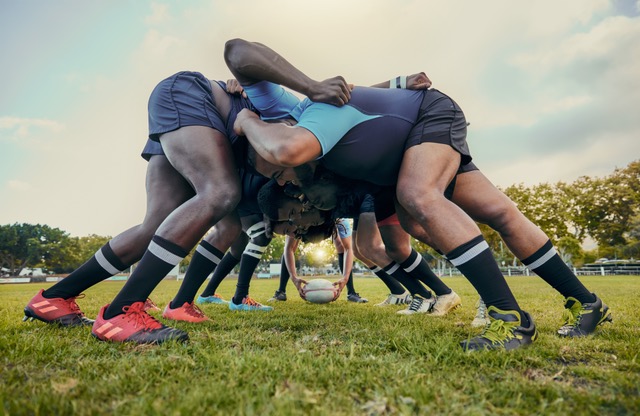How focusing on the process not the outcome can help us to manage stress

Crucial lessons about understanding and managing our reactions to pressure
I listened to a podcast recently with the legendary former All Blacks player Dan Carter during which he shared his hard-earned lessons from failure.
Up there in career-defining moments was when the All Blacks experienced their worst defeat in a Rugby World Cup in 2007, made more painful by the fact that, as the number one rugby team in the world at the time, they were the favourites to win.
The run up to the quarter-final against France was relatively smooth sailing, boosting the team’s sense of confidence and self-belief. But when France switched it up a gear and started dominating the score board, the All Blacks experienced what Carter describes as “red head”.
They couldn’t think clearly. Emotions took over, shoving logic, reason and clarity of thought out of the way. Players, experiencing a fight, flight or freeze reaction, made uncharacteristic mistakes, passing poorly and misjudging kicks as the game slipped away.
What happened after that humbling World Cup defeat was an All Blacks first. Rather than sack the coaches and bring in a fresh leadership squad with new ideas, they decided to retain the coaching team and asked them to mine their experiences to examine what they could learn from failure.
Individual stress reactions
A crucial step to understanding the stinging loss was to explore how each individual player responded to experiencing “red head”, a strong emotional reaction also known as the amygdala hijack. The more they could understand about themselves and each other, the more they could mitigate the risks of their emotions taking over and derailing their performance when the pressure ramped up.
Research in personality psychology shows us that our reaction to stress will depend to an extent on where we sit on the spectrum of a personality trait called emotional stability. At one end of the scale are people who feel emotions very strongly, worry a lot and experience extreme self-doubt (they also tend to be able to recognise stress well in others). At the other end are those for whom pressures and setbacks are like water off a duck’s back. Most people – around two-thirds – sit somewhere around the middle.
Whilst few of us will experience the extreme pressure of a Rugby World Cup match, it’s likely that most can relate to being in the red zone – perhaps during a work conflict, when being thrown difficult questions in an important meeting, or experiencing the dawning realisation that we’ve made a huge mistake. Even the accumulation of everyday micro-stresses can cause our emotions to overrule our logical reasoning and dictate our actions, resulting in unhelpful behaviours.
Our stress reactions will also often depend on the context we’re in. One situation may elicit a fight reaction, while another might provoke us to take flight, depending on the nature of the pressure or who we’re with, for example.
Another reaction, often overlooked, is ‘fawning’, where some of us respond to stress by gravitating towards others and ingratiating ourselves. This is also known as ‘please and appease’ and associated with people-pleasing tendencies.
The more we understand about what triggers our stress reaction, how it impacts our behaviours – and the consequences for ourselves and others – the more we can mitigate the risks and manage our behaviours more helpfully.
The “blue head” zone
Reflecting on their failure, the All Blacks knew that to be the best they needed to maximise the chances of staying in the “blue head” zone.
They intentionally put themselves in high-intensity situations, training under extreme pressure to see how each player responded under the strain. Referees were brought into blatantly cheat or two rugby balls were thrown on to the pitch to confuse players; the training was frequently tougher than the actual matches.
Carter noticed that his red moments occurred when he felt like he was letting the team down and needed to make it up to them. He learnt that noticing these thoughts, understanding how his brain was responding to the pressure, taking a breath and then going back to basics - telling himself to catch the ball, throw the ball - helped to calm his nervous system and be in the moment. By focusing on the process, not the outcome, and the factors that were under his control brought him back to blue.
Fast-forward to the 2011 World Cup and in a nail-bitingly tense final against France - with the teams within a point of each other and France piling on the pressure - the All Blacks knew what they needed to do to stay in control. They understood how they each reacted to pressure, the behaviours that might derail them and, crucially, the strategies to come back to blue so they could remain clear, calm and decisive. They went on to win the World Cup.
Carter largely credits their 2011 World Cup win to the lessons learnt from their 2007 defeat and how they understood and managed their reactions to pressure. Not only did they win the Cup in 2011 but they became the first team to retain the title in 2015 and topped the rugby world rankings for nine years straight.